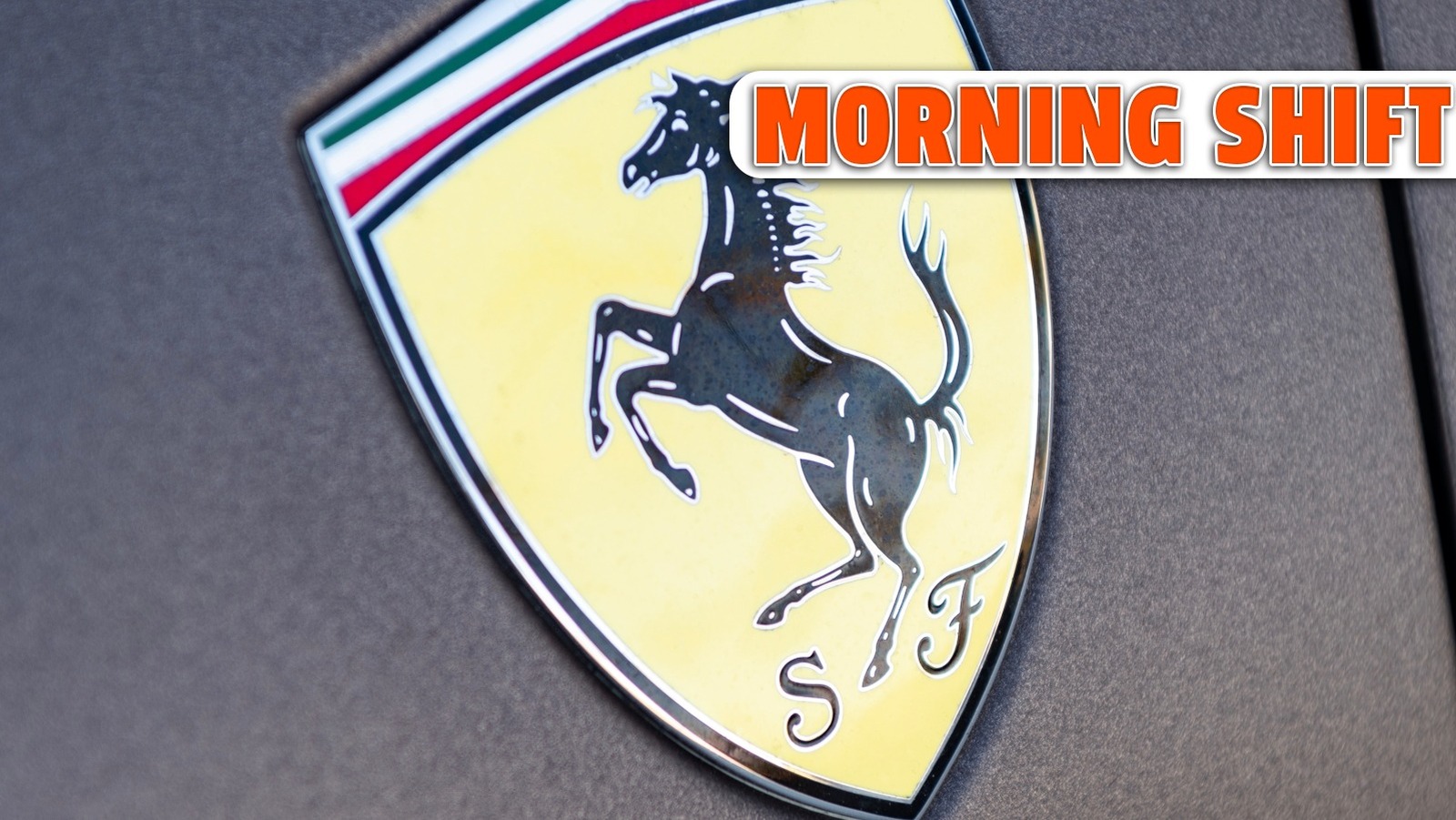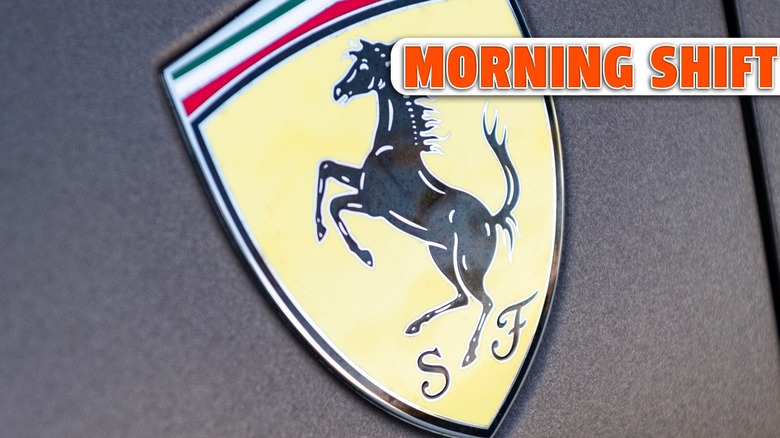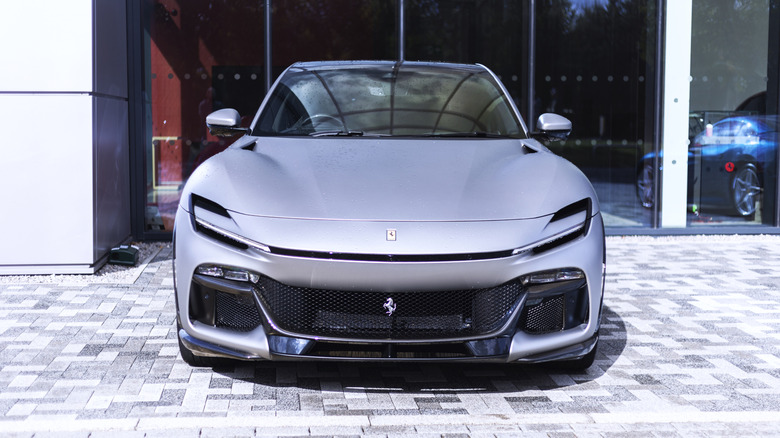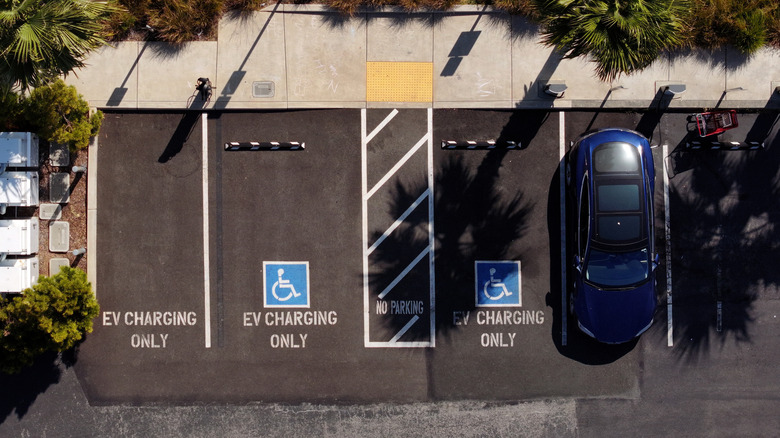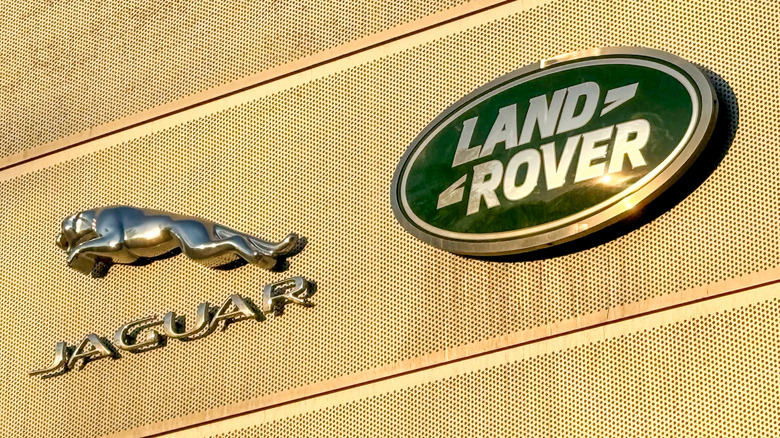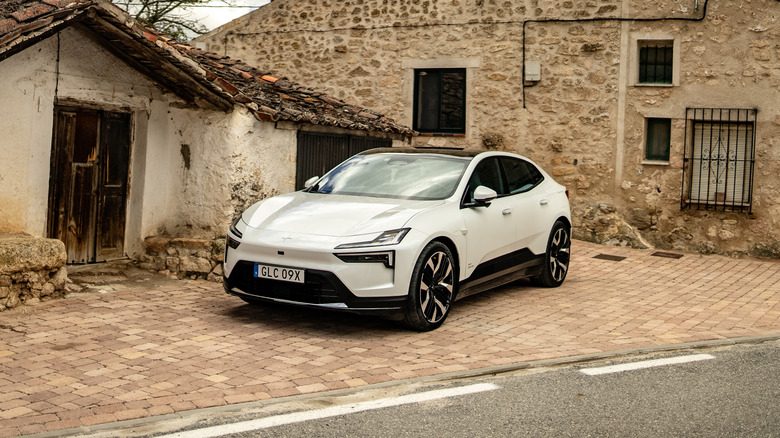Good morning! It’s Tuesday, June 17, 2025, and this is The Morning Shift, your daily roundup of the top automotive headlines from around the world, in one place. This is where you’ll find the most important stories that are shaping the way Americans drive and get around.
In this morning’s edition: Ferrari hits the brakes on building a second electric supercar, Europeans are losing interest in EVs faster than Americans, Jaguar-Land Rover is cutting its forecasts and Polestar gets a big boost from Geely’s founder.
Lock in, folks. It’s chewsday, and we’ve got a lot to talk about.
1st Gear: Ferrari isn’t rushing to build a second EV
Despite the fact it has yet to fully reveal its first fully electric model, Ferrari is already delaying its second electric vehicle. Originally, the follow-up was supposed to be out in 2026, but now it isn’t going to show up until 2028 at the earliest. The reason for this? You guessed it: a lack of demand for high-performance luxury EVs, according to a couple an anonymous sources who spoke with Reuters.
Ferrari has sold hybrids since 2019, and it is set to unveil its first electric vehicle in October of this year before deliveries begin in October of 2026. Here’s more from Reuters:
Aside from the lack of a throaty roar that comes with an electric sports car – the top selling point for many wealthy buyers – automakers have struggled to overcome the fact that EV batteries are far too heavy and simply lack the sustained power of a fossil-fuel engine.
As part of Ferrari’s undisclosed internal plans a second EV model was planned for around the end of 2026. But now it is not expected before 2028, one of the sources said, who added that real, sustainable demand is non-existent for an electric sports car.
The source said low market interest would also give Ferrari time to further develop in-house technology for its second electric vehicle, although soft demand remained the main reason for the delay.
[…]
The plan for a second Ferrari EV has been delayed twice by the Maranello, Italy-based company. Initially there was a one-year postponement, but now the model will launch in 2028 at the earliest, the second source said, adding that demand for high-performance is currently “zero”.
Reuters had previously reported that a second Ferrari EV was under development, but the Italian automaker has remained quiet about anything beyond its first EV. However, the second car will apparently be a “game changer” for Ferrai’s EV strategy — meaning it’ll be a higher-volume model than the first car that is set to be unveiled later this year.
Ferrari isn’t alone in delaying or outright canceling an electric supercar. Lamborghini said in December that it would launch its first EV in 2029 instead of 2028. Porsche cut back on its plans for more EVs because of lower-than-expected Macan and Taycan sales. It’s even worse over at Maserati. The Italian company completely scrapped its plans for an electric version of its MC20.
2nd Gear: Americans are actually more into EVs than Europeans
Buyers are becoming more and more hesitant to switch out their gas cars for an EV. It may seem like this is an issue primarily in the U.S., but it turns out a new survey shows that the trend is actually more pronounced in Europe. The main reason is pretty universal, though: cost. The survey, conducted by Shell, spoke to 15,000 drivers across the world, including England, China, Germany and the U.S. From Reuters:
“Europe surprised us,” said David Bunch, Shell’s chief for mobility and convenience. “The single biggest barrier to entry is the cost of the vehicle. Range anxiety is still there but it’s diminishing.”
Electric vehicles are on average up to 30% more expensive than internal combustion engine cars.
This year, 41% of respondents in Europe said they would consider switching to an electric car compared with 48% last year, while in the United States the number fell three percentage points to 31%, the survey showed.
In terms of the pace at which the charging experience is improving, only about half of European drivers said public charging had improved in the last year, below China’s 74% and 80% in the United States.
Just 17% of European drivers who were surveyed said public charging was a good value. That’s a stark contrast to what surveyors found in China and the U.S., where 69% and 71%, respectively, said these chargers actually offered a good value for money.
At the end of the day, everything is about money. If automakers can’t find ways to make their EVs cheaper, then they’re going to continue to lose out to less expective gas alternates.
It’s going to be interesting to see where things in the U.S. are a year from now, assuming Republicans have done away with the $7,500 EV tax credit.
3rd Gear: Jaguar-Land Rover is hurting because of tariffs
Few automakers are struggling more than Jagauar-Land Rover right now (especially Jaguar). The British luxury automaker lowered its fiscal 2026 earnings before interest and taxes margins to 5%-7% — down from 10%. It’ll also represent an EBIT margin drop from last year when it was at 8.5%. Like most messes in the world right now, you can blame President Trump and his tariffs for this. From Reuters:
JLR added it sees free cash flow of close to zero in fiscal 2026.
The company, which derives over quarter of its sales from the U.S., had temporarily paused shipments to the country after President Donald Trump slapped a 25% duty on all foreign-made vehicles sold in the world’s second-largest car market.
The ‘Defender’ sport utility vehicle maker said it is re-allocating available units to “accessible markets”, to boost profits.
It added that it continues to engage with both the U.S. and UK governments regarding a trade deal signed in May, which allows the UK to export 100,000 cars a year to the U.S. at a 10% tariff, below the 25% levy for other nations.While JLR’s “Range Rover” SUV lineup is manufactured in the UK, the popular “Defender” is made in Slovakia, a member of the European Union, which does not yet have a trade pact with the Trump administration.
The automaker is apparently assessing whether or not to raise prices in the U.S. to offset the impact of tariffs. Luckily, its customer base is already pretty loaded, so they’re not going to be too deterred by marginally higher prices.
Still, this is just more bad news for a company that hasn’t caught a break in a really long time.
4th Gear: Polestar gets $200 million gift from Geely founder
Polestar has been given a major cash infusion from PSD Investments, a company controlled by Geely’s founder, Li Shufu. In exchange, the Swedish EV maker will sell more than 190 million Class A American depositary shares to PSD Investment. The firm now holds a 44% stake in Polestar. That means Shufu will hold a total of 66% of Polestar between the investment and the stake Geely already had in the brand. From Automotive News:
The Swedish automaker has faced challenges in boosting demand for its vehicles amid a softer market and intense competition, and like many other EV makers had a need for further funding.
While the automaker has received loans from various banks in the past year, further financial support from Geely and Li Shufu, also known as Eric Li, has not materialized until now.
[…]
Polestar said the private investment in public equity (PIPE) transaction is intended to provide working capital and fund general corporate purposes.
The company said that prior to the closing of the transaction PSD Investment plans to convert 20 million of its Class B ADS shares into Class A ADS shares, in a bid to keep its total voting power in Polestar below 50 percent.
All of this also means that Volvo’s share of Polestar just got even smaller. The Swedish company now has just a 16% stake in Polestar — down from 18%. Volvo cut its holdings and halted financial support last year because executives felt Polestar was becoming a burden on its resources.
Reverse: The Juice is loose
On the radio: Good Charlotte – Girls & Boys
I’m feeling angsty in an early-2000s sort of way this morning. I think I should lean into that for the rest of the day.


